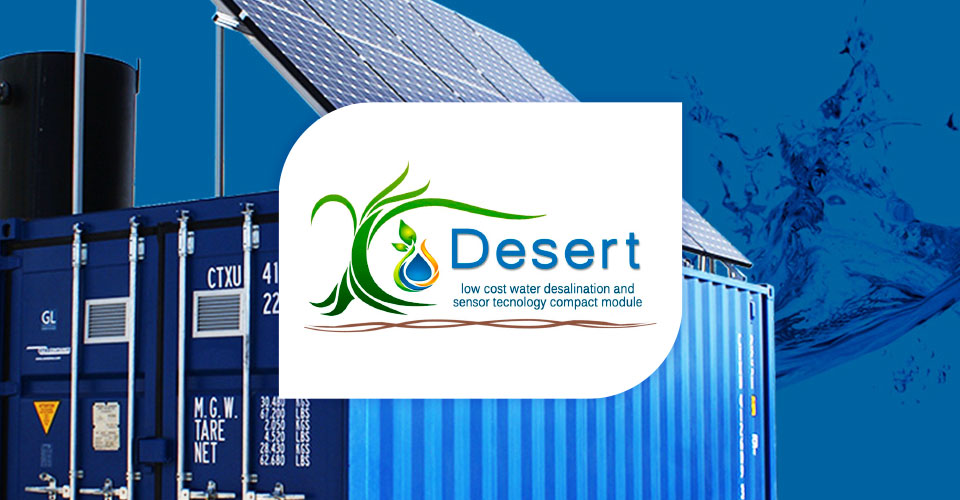DESERT. Compact low power consumption solar module for irrigation
The DESERT Project aims at the integration of water treatment technologies in a compact module with low consumption thanks to the use of solar energy.
In the coming decades, a large percentage of the world’s population will live in areas with scarce or poor water quality due to climate change and population growth. Agriculture will face the challenge of supplying the growing demand for food.
In the Mediterranean area, irrigated agriculture contributes to a high percentage of final production, and salinization is a growing problem in both water and agricultural land worldwide.





PROJECT OBJECTIVE
The main objective of the DESERT Project is to create an innovative smart system that combines sustainable water treatment technologies and water quality sensors adapted to the local situation (climate, water resources, cropping systems, economic potential of the producer and regulatory conditions). Novagric has been in charge of the manufacture of two compact prototypes (HidroNIC-Desal and HidroNIC-Fert) for the use of wastewater loaded with salinity and integrating Ring Filtration, Ultrafiltration, Osmosis, Injectors of essential products, XILEMA Fertigation equipment, all designed to optimize energy consumption thanks to the use of solar energy.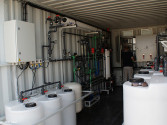
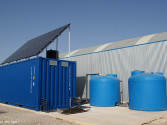
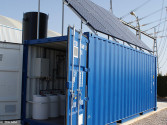
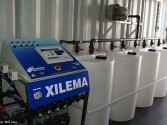
PROJECT RESULTS
Desalination System The need to adapt non-conventional water for use in fertigation, as a consequence of water scarcity and the environmental impact of nutrient discharge into the environment, led to the choice of water from the tertiary treatment plant of a coastal zone WWTP for treatment in this project. In this part of the project it has been proven that it is possible to remove the part of mineralization and contamination from the water that is not of interest to us, to treat it, and to leave it with enough nutrients to be suitable for fertigation. Fertigation System The growing concern for environmental sustainability has given rise to the need to integrate a system that optimizes fertilizer expenditure by making the best use of the nutrients already contained in the water entering the system. In this part of the project, it has been proven that it is possible to integrate a fertigation system based on the control of selective ions, and thus, to make a nutritive solution suitable for crops, optimizing and improving the use of fertilizers in the irrigation water preparation process. Photovoltaic System The entire energy consumption system has been designed to use only solar generated energy, which optimizes environmental resources. In this part of the project, the consumption of the electrical elements selected for the project, as well as the performance of the photovoltaic energy generation and storage system, have been thoroughly studied and worked on. It has been possible to optimize the cost of generating water for agricultural use. “In search of sustainable agriculture and a closed water cycle, we have designed a compact unit capable of obtaining water for agricultural use from wastewater, eliminating bacteria and other biological and chemical contaminants, taking advantage of the nutrients contained in the water, and using solar energy as an energy resource”. Therefore, the technology developed for the DESERT project can contribute to mitigate the negative effects of intensive surface and groundwater abstraction, improve water quality, optimize fertilizer consumption, and thus increase farmers’ income through cost savings and reduced water and fertilizer requirements.Partners and financing
Novagric has participated in this R&D project together with the Universities of Liège, Bari, CEBAS-CSIC and CREA. The Desert Project is part of one of the initiatives of the ERA-NET COFUND WATER WORKS 2014 program co-funded by the European Union for the sustainable management of water resources in agriculture.
Categorías
Últimas novedades
- This Christmas, agriculture takes shape at Novagric
- HORT2THEFUTURE. Oxygen irrigation to improve soils
- HORT2THEFUTURE. Oxygen irrigation to improve soils
- GREENFOLD. Foldable and Reusable Greenhouses
- DARkWIN. Project to improve crops in the face of climate change
- +PreVENT. Positive pressure system for ecological greenhouses
- Novagric develops Solidarity Agricultural Projects
- Carbon Fertilisation Levels in Greenhouses
- How to control the climate during carbon fertilisation
- i-GROW. Protected crop management support systemtivos protegidos

